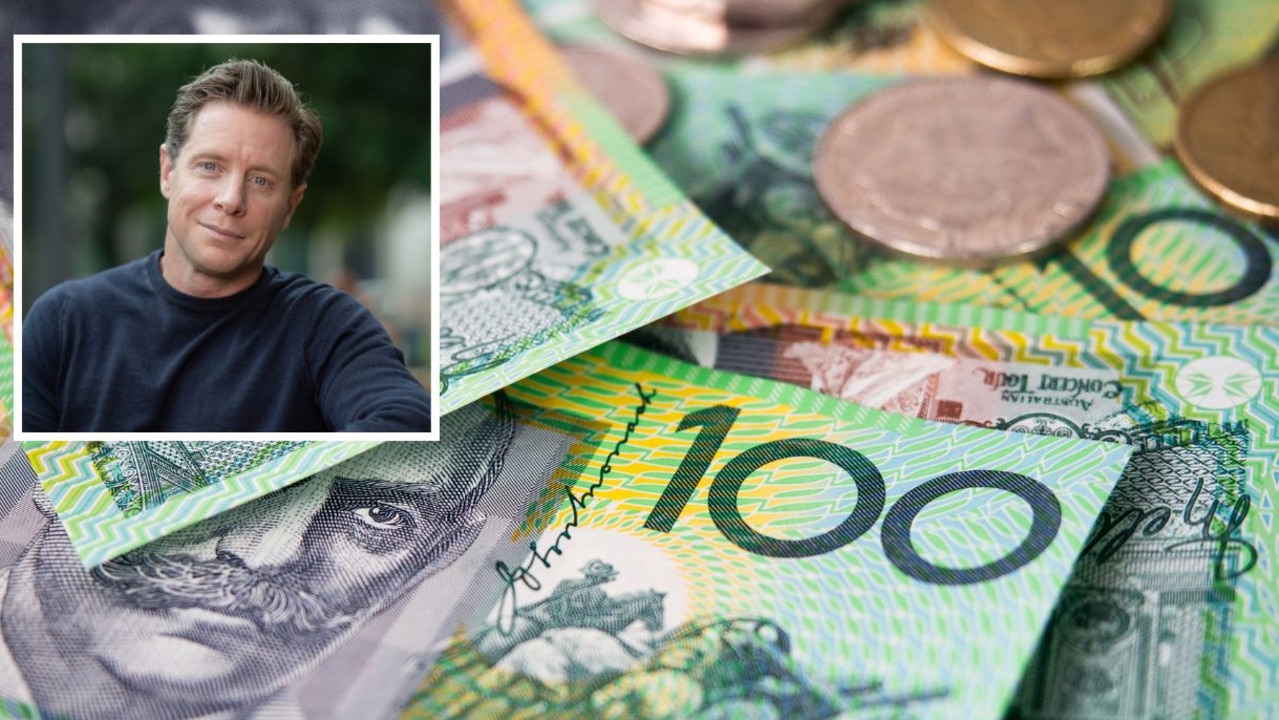Barefoot Investor’s cash ‘surcharge’ prediction

- by Admin
- April 23, 2024

Barefoot Investor Scott Pape has shut down theories Australia will go completely cashless, making the bold prediction that Aussies may be slapped with a ‘surcharge’ when using notes and coins in the future.
The finance guru made the claim when responding to a reader’s concerns about the country’s move towards digital payments in his weekly newsletter.
“I’ve heard some talk lately (a lot more than the normal conspiracy theories) around the removal of coins and then notes from the Australian monetary system – moving Australia to a completely cashless society,” reader Lyn, wrote to Mr Pape.
Lyn claimed there has been a “discussion” between cash transit company Linfox, the government and the banks “around how expensive it is to ‘move’ coins around the country for regional post offices, banks, corner shops”.
“The proposal is that the $1 and $2 coins will become notes again to reduce weight, and that later notes themselves will go,” she claimed.
Expressing concern over the “scary” concept, Lyn suggested removing cash would result in “a lot more traceability of payments and business transactions”
“The ATO would see everything!”
Responding to her concerns, Mr Pape suggested Australia won’t completely ditch cash in the future, despite that fact “we basically already live in a cashless society”.
“As much as the ATO would love it,” he quipped.
He also expressed his confusion over why there are currently no additional fees for cash payments, given the extra cost to businesses to accept it.
“It’s always puzzled me why paying for something with cash doesn’t have a surcharge like cards do,” he responded.
“After all, there’s a huge cost to taking cash: think of the shopkeepers who have to walk to a bank holding more money than a homie in a rap video. Or Armaguard, who have two pistol-packing blokes driving around in an armoured tank.”
He confirmed while he doesn’t “see an end for cash, I do see a future where there is a surcharge on paying with cash”.
Defending his prediction that cash won’t be permanently removed from society, the best-selling author pointed to Norway, where the government is looking to legislate the right for its citizens to pay with cash.
“A good case study is Norway, which is the world’s most cashless country, with only two per cent of payments being made with cash,” he wrote.
“Yet Norway is currently legislating the right for its citizens to continue paying with cash to ensure that they are ‘prepared for emergencies” (like when the artificial intelligence robots shut down our digital payment systems and have us dance like monkeys for their entertainment).”
In Australia, the decline in cash has been widely reported, with experts warning the country will become “functionally cashless” by 2025.
Only around 13 per cent of payments were made using cash in 2022, compared to 30 per cent in 2019.
Banks have shuttered about 1600 branches in the past six years alone.
With cash declining, Armaguard, Australia’s largest currency transport business, owned by Linfox Group, has felt the struggle.
Last month, Armguard rejected a A$26 million rescue offer by some of the country’s biggest companies, which would have required it to open its books.
Instead, the business opted for A$10 million package from its parent company Linfox to keep the company afloat for a number of weeks.
But according to Steve Worthington, Adjunct Professor at Swinburne University, “the company’s future remains far from certain, worrying the Reserve Bank”.
“The Reserve Bank of Australia (RBA) has a vested interest in maintaining cash as a store of wealth and means of payment for many people, particularly as a backup option when electronic payment systems are unavailable or offline,” Professor Worthington wrote in a recent piece for The Conversation.
RBA governor Michelle Bullock also confirmed in December the bank “places a high priority on the community continuing to have reasonable access to cash withdrawal and deposit services”.
An RBA spokesperson told Daily Mail it is not considering changing coins into bank notes, as suggested by the reader.
The Latest News
-
December 22, 2024Tiger Woods’ son Charlie makes a hole-in-one in the final round of the PNC Championship – Australian Golf Digest
-
December 22, 2024Tennis’ love match: Meet ‘Aussie’ Matteo Arnaldi and his Melburnian girlfriend
-
December 22, 2024GEORGIE PARKER: McSweeney was McStiff to get axed
-
December 22, 2024Chris Eubanks picks the ATP player he considers a real dark horse to win the Australian Open
-
December 22, 2024Time for the Swedish chef: Ikea’s furniture profits are down in Australia, but food sales are booming



